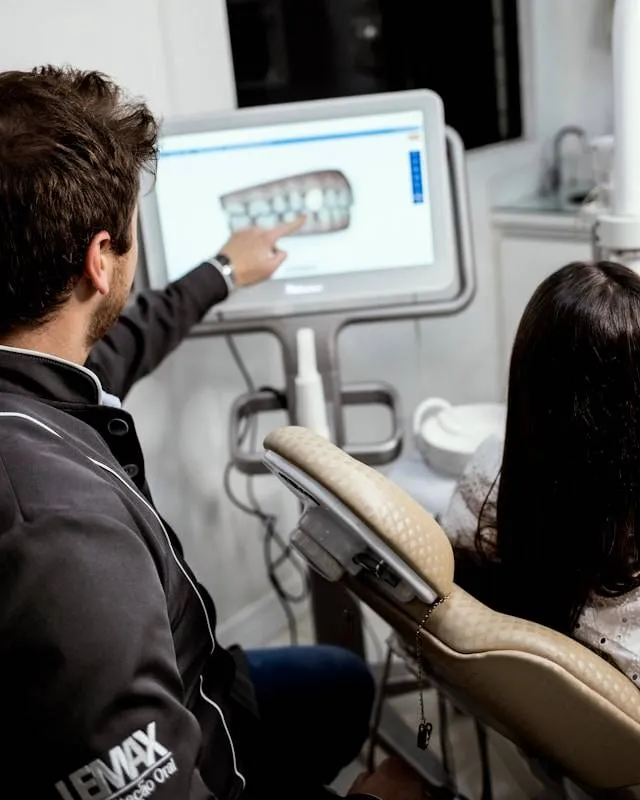1. Introduction to porcelain teeth
Porcelain crowns are a popular dental procedure to improve the appearance and function of your teeth. The procedure involves placing a thin layer of porcelain over the surface of your natural teeth, improving the color, shape, and size of your teeth. However, many people worry about the sensitivity after getting porcelain crowns and wonder, "How long does it take for porcelain crowns to stop hurting?" This article will answer that question and provide detailed information about the recovery process after getting porcelain crowns.
2. Causes of tooth sensitivity after porcelain teeth
There are many causes that can cause tooth sensitivity after porcelain teeth:
a) Tooth grinding process: Before placing porcelain teeth, the dentist needs to grind a thin layer of tooth enamel, which can cause temporary sensitivity.
b) Nerve stimulation: The porcelain tooth making process can stimulate the nerves in the teeth, leading to a feeling of pain.
c) Change in bite pressure: New porcelain teeth can change the way you bite, creating unusual pressure on your teeth and gums.
d) Reaction to porcelain material: In rare cases, the body may react to porcelain material, causing discomfort.
e) Gingivitis: If the gums are irritated during the porcelain crown process, it can cause pain and sensitivity.
3. Normal time for tooth sensitivity to go away after porcelain teeth
The time it takes for tooth sensitivity to go away after porcelain veneers can vary from person to person, but usually:
- During the first 24-48 hours: The tingling sensation may be most noticeable.
- After 3-5 days: Most people with porcelain teeth will feel more comfortable and less sensitive.
- After 1-2 weeks: Most cases will completely stop feeling pain.
However, it may take some people up to 4-6 weeks to fully adapt to their new porcelain teeth and stop feeling sensitive.
4. Factors affecting the time it takes for tooth sensitivity to go away
The time it takes for tooth sensitivity to go away after getting porcelain teeth can depend on many factors:
a) Tooth sensitivity: People with pre-existing tooth sensitivity may take longer to get rid of the pain.
b) Number of teeth made: Making many porcelain teeth at the same time can prolong recovery time.
c) Dentist technique: An experienced dentist can minimize damage and shorten recovery time.
d) Quality of porcelain teeth: High quality and suitable porcelain teeth can help reduce the time of sensitivity.
e) Post-procedure care: Following your dentist's care instructions can help reduce the duration of sensitivity.
5. How to reduce tooth sensitivity after porcelain teeth
There are many ways to reduce tooth sensitivity after porcelain teeth:
a) Use toothpaste for sensitive teeth: These toothpastes contain ingredients that help reduce sensitivity.
b) Avoid foods and drinks that are too hot or too cold: Extreme temperatures can irritate nerves and cause sensitivity.
c) Use fluoride mouthwash: Helps strengthen tooth enamel and reduce sensitivity.
d) Gently massage the gums: Can help increase blood circulation and reduce discomfort.
e) Take pain relievers: If necessary, over-the-counter pain relievers such as ibuprofen can be used.
6. When to see a dentist if sensitivity persists
You should contact your dentist if:
- The feeling of pain does not decrease after 2 weeks.
- The pain becomes more severe instead of decreasing.
- Severe pain or swelling of the gums.
- Feel like the porcelain teeth are loose or do not fit properly.
- Problems biting or chewing.
7. Proper porcelain teeth care methods to reduce sensitivity
Proper care of porcelain teeth not only helps reduce sensitivity but also prolongs the life of porcelain teeth:
a) Brush gently: Use a soft toothbrush and non-abrasive toothpaste.
b) Use dental floss: Clean between teeth and below the gum line carefully.
c) Avoid hard foods: Limit eating hard foods that can damage porcelain teeth.
d) Limit colored drinks: Coffee, tea, and red wine can stain porcelain teeth.
e) Wear a mouth guard while sleeping: If you have a habit of grinding your teeth, wear a mouth guard to avoid damaging your porcelain teeth.
8. Things to note when getting porcelain teeth to reduce sensitivity
To minimize tooth sensitivity when getting porcelain teeth, you should:
a) Choose an experienced dentist: A good dentist will perform the procedure carefully, minimizing damage to teeth and gums.
b) Discuss the appropriate type of porcelain teeth: Some types of porcelain teeth may cause less sensitivity.
c) Inform your dentist if you have sensitive teeth: This helps your dentist take appropriate precautions.
d) Follow pre- and post-treatment instructions: Your dentist will provide care instructions, please follow them strictly.
e) Don't do too many teeth at once: If possible, divide it into several sessions to reduce stress on teeth and gums.
9. Frequently asked questions about tooth sensitivity after porcelain crowns
Q: Does getting porcelain teeth hurt?
A: The process of making porcelain teeth is usually not painful because the dentist will use anesthesia. However, after the procedure, you may feel a little sore for the first few days.
Q: Can I drink ice water after getting porcelain teeth?
A: For the first few days after getting porcelain veneers, you should avoid drinks that are too cold or too hot as your teeth may be sensitive. Stick to room temperature drinks.
Q: How to differentiate between normal and abnormal sensitivity?
A: Normal sensitivity will gradually decrease over time and is not severe pain. If the sensitivity increases or is accompanied by severe pain or swelling of the gums, you should contact your dentist.
Q: Do I need to change my diet after getting porcelain teeth?
A: For the first few days, you should eat soft foods, avoiding foods that are too hot, too cold, or hard. Once the sensitivity has gone, you can return to your normal diet, but you should still be careful with hard foods.
10. Conclusion
Dental crowns are an effective way to improve the appearance and function of your teeth. Although they may cause temporary sensitivity, with proper care and patience, most people will experience no more sensitivity within 1-2 weeks of having dental crowns.
To minimize and shorten the duration of sensitivity, choose an experienced dentist, follow aftercare instructions, and take desensitizing measures such as using special toothpaste. If sensitivity persists or becomes severe, do not hesitate to contact your dentist for examination and advice.
If you have any questions about porcelain crowns or are concerned about sensitivity, please do not hesitate to use the 'ASK A QUESTION' form on our website. Sakura's doctors will be happy to answer them for free.
You can also test your dental knowledge with the 'DENTAL QUIZ' tool on the website. This is a fun way to learn more about proper dental care.
Remember, a healthy and confident smile starts with daily dental care and choosing the right treatment when needed. Wishing you always have healthy teeth





